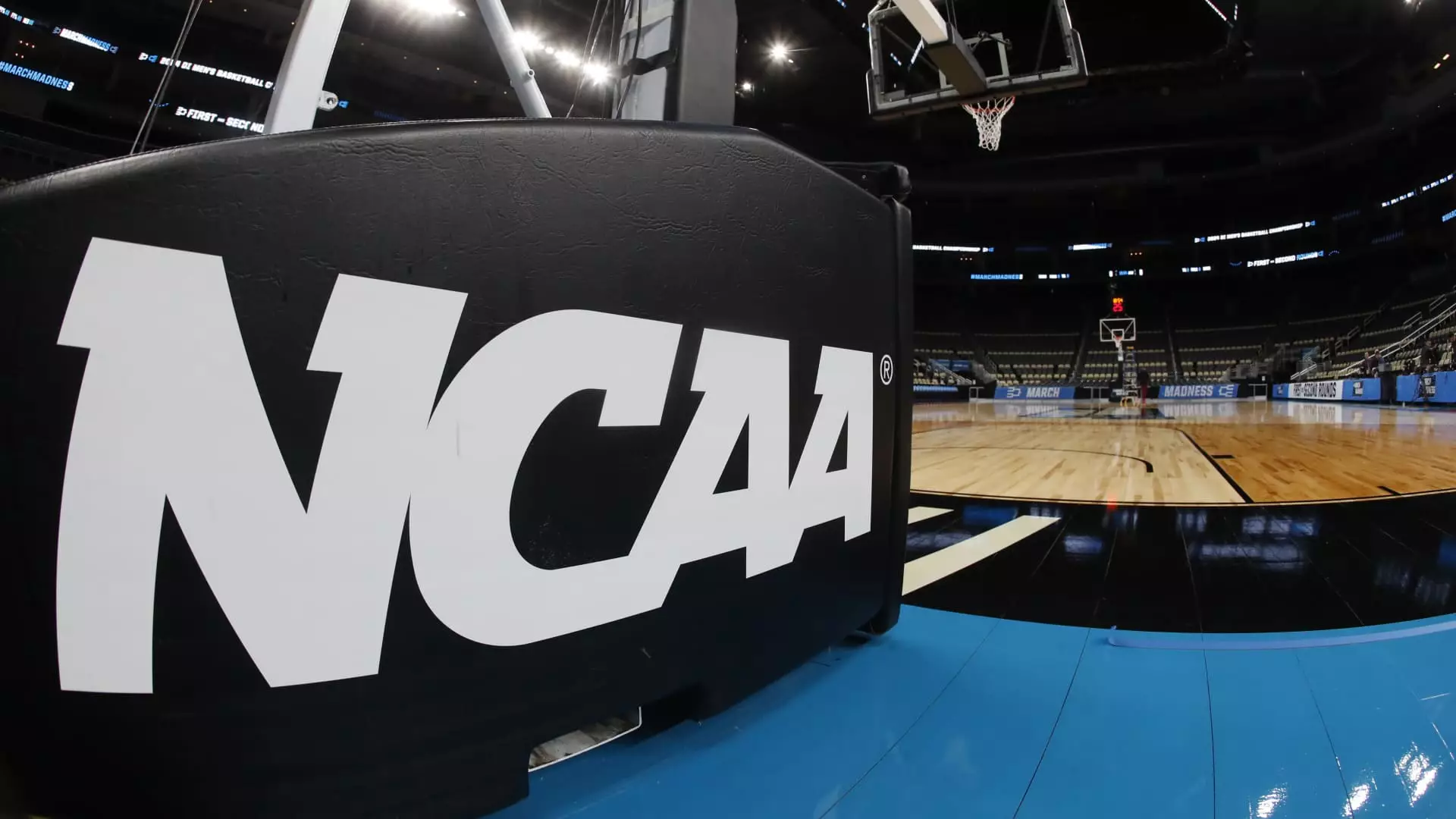On a significant day in the domain of collegiate athletics, the National Collegiate Athletic Association (NCAA) revealed an update to its transgender student-athlete policy. This revised approach explicitly prohibits transgender women from competing in women’s sports while permitting those assigned male at birth to train with women’s teams and access related resources. The move comes shortly after an executive order by then-President Donald Trump, which threatened federal funding for institutions that do not comply with this viewpoint. The implications of this policy are multifaceted, presenting a complex intersection of sports, gender identity, and federal governance.
The new regulations stipulate that while trans women can practice with women’s teams—along with access to benefits such as medical care—they will not be allowed to participate in formal competitions. Conversely, individuals of any gender can compete on men’s teams, albeit those undergoing testosterone treatment must go through a medical exemption. Notably, the policy also restricts those assigned female at birth who are undergoing hormone therapy from participating in women’s sports. This switch from the NCAA’s previous stance, which relied on the Olympic standards of eligibility for trans athletes, highlights a significant shift in the governing body’s approach to inclusion and equity.
NCAA President Charlie Baker articulated the organization’s belief that standardized national eligibility criteria are crucial in supporting student-athletes, especially in an environment rife with varying state laws and court rulings. This emphasis on uniformity raises critical questions regarding the balancing act between inclusivity and perceived fairness in sports.
Political Influences and Social Settings
Triggering this policy shift was not just a regulatory assessment but also a political one. Trump’s administration has consistently engaged in battles concerning gender identity, framing the discourse around what it defines as “gender ideology.” This perspective reduces gender to a binary framework, disregarding the complex realities of many transgender and non-binary individuals. The implications of such a viewpoint extend beyond athletics into educational institutions and social contexts, where individuals often navigate nuanced realities that defy strict classifications.
Critics of the NCAA’s latest policy have emerged vocally, particularly from within the LGBTQ+ community. Chris Mosier, a prominent transgender athlete and advocate, emphasized that this new directive reinforces a limited understanding of gender by framing it strictly according to birth-assigned sex. Such a position not only marginalizes transgender and non-binary people but also endangers intersex individuals and those undergoing hormone therapy for varied medical reasons.
GLAAD, an organization dedicated to promoting LGBTQ+ acceptance, condemned the NCAA’s move as “deeply disturbing,” alleging that it disregards credible medical and scientific insights. By asserting that these changes are reactionary to Trump’s rhetoric rather than grounded in research, GLAAD underscores a fundamental disconnection between policy-making and the lived realities of diverse athletes.
The Importance of Intersectionality in Sports Policy
The fallout from this policy change serves as a crucial reminder of the significance of intersectionality in sports. Transgender athletes, particularly trans women, often find themselves navigating not just their identities but also the societal and institutional barriers erected around them. As discussions about fairness in sports sway towards an increasingly polarized public sentiment, the NCAA’s decisions will undoubtedly play a prominent role in shaping the conversation on gender and athletic eligibility.
As sports entities reflect on their policies, the importance of grounding decisions in compassion and understanding, rather than fear and exclusion, cannot be overstated. The future of collegiate athletics hinges on the ability of governing bodies to foster an inclusive environment that celebrates diversity rather than constraining it within binary confines.
The NCAA’s revised transgender athlete policy is emblematic of a broader societal struggle over identity, rights, and equity. It represents a critical juncture, where the spheres of athletics, politics, and human rights intersect. As various stakeholders grapple with the implications of this policy, the voices of affected individuals must remain at the forefront of the conversation. Ensuring that both inclusion and integrity can coexist in sports is the challenge of our times, one that demands constant reflection and reevaluation by all involved.

